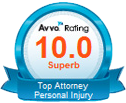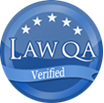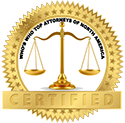On Behalf of Adler Law Group, LLC
One of the main reasons that retail stores and businesses put out signage warning about wet floors and other potential hazards is not so much to protect their customers but to protect themselves. While there could still be an accident, not warning others about a wet surface could open a door to a lawsuit over premises liability. Like every state, Connecticut has laws that govern how negligence cases can be pursued.
There are laws that deal with negligence on the part of another party or a business that results in someone suffering physical harm. While the majority of the states have done away with contributory negligence, most states — including Connecticut — do have a comparative scale when it comes to filing a negligent personal injury lawsuit. Contributory negligence laws made it difficult for an injured party to collect in a personal injury case because the laws stated that even if the injured party was one percent at fault, then the judge could not allow the party to collect any damages.
Connecticut is one of the many states that have comparative negligence laws. As long as an injured party was not more than 50 percent at fault, then he or she can file a personal injury suit against the parties responsible. This is considered a modified comparative law. In the pure form of the law, a person can collect if he or she is even 99 percent to blame for the accident. Furthermore, if there is more than one party at fault in a negligence suit, then the responsibility can be separated by degrees.
An injured party can decide to leave an at-fault party out of a lawsuit if there are others who are deemed more at fault. There are stipulations in place that protect some entities from being sued if one suffers an injury on site, such as a school (in most, but not all circumstances). If a Connecticut resident suffers an injury that he or she believes is a premises liability case, then that person can consult with a personal injury attorney who can provide more information about the merits of the case.
Source: FindLaw, “Connecticut Negligence Laws“, Accessed on April 1, 2017



















